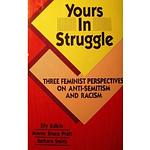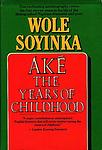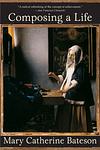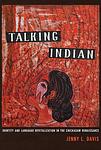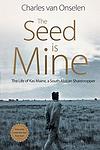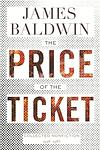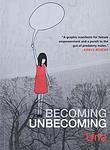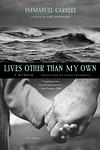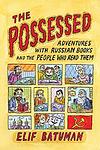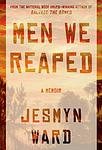The Greatest "Nonfiction, Social & Cultural Fiction" Books Since 1980
Click to learn how this list is calculated.
This list represents a comprehensive and trusted collection of the greatest books. Developed through a specialized algorithm, it brings together 284 'best of' book lists to form a definitive guide to the world's most acclaimed books. For those interested in how these books are chosen, additional details can be found on the rankings page.
Genres
Social & Cultural Fiction is a literary category that encompasses novels and stories that delve into the complexities of society and culture, exploring themes such as class, race, gender, and identity within specific social contexts. These narratives often provide a lens through which readers can examine the intricacies of human relationships and the impact of cultural norms and societal structures on individuals and communities. By offering a fictional yet reflective portrayal of real-world social dynamics, this genre invites readers to gain a deeper understanding of the diverse experiences that shape our world. Authors in this category frequently use their characters and settings to comment on contemporary issues, challenge prevailing ideologies, and provoke thought about the possibility of social change, making Social & Cultural Fiction a powerful tool for empathy and a mirror for the ever-evolving human condition.
Countries
Date Range
Reading Statistics
Click the button below to see how many of these books you've read!
Download
If you're interested in downloading this list as a CSV file for use in a spreadsheet application, you can easily do so by clicking the button below. Please note that to ensure a manageable file size and faster download, the CSV will include details for only the first 500 books.
Download-
1. The Emigrants by Winfried Georg Sebald
"The Emigrants" is a novel that explores the experiences and memories of four different emigrants, each with a unique and complex history. The narrative primarily focuses on the psychological impact of displacement and the haunting nature of the past. The author delves deep into their lives, revealing their struggles with identity, loss, and the persistent influence of their roots. The narrative is interwoven with historical events, photographs, and other documents, creating a rich tapestry that blurs the line between fact and fiction.
-
2. What Is the What by Dave Eggers
The novel is a fictionalized account of a real-life Sudanese refugee, Valentino Achak Deng, who was forced to flee from his village during the Second Sudanese Civil War. The story follows his harrowing journey as a child through Ethiopia and Kenya, his life in various refugee camps, and his eventual resettlement in the United States. The book explores themes of survival, identity, and the power of storytelling, while shedding light on the tragic history and ongoing humanitarian crisis in Sudan.
-
3. The Liars' Club by Mary Karr
The memoir is a gritty, often hilarious look at a childhood in a dysfunctional family in a small Texas town. The narrative follows the author's experiences growing up in the 1960s in a family rife with alcoholism, mental illness, and violence. It is a story of resilience and survival, as the author navigates her chaotic home life, the sexual abuse she suffered, and her mother's mental instability, eventually finding solace in literature and writing. Despite the harsh realities it depicts, the book is filled with humor and love, offering a poignant exploration of the bonds of family and the power of storytelling.
-
4. Wittgenstein's Nephew by Thomas Bernhard
"Wittgenstein's Nephew" is a semi-autobiographical novel that explores the friendship between the narrator and his friend Paul, who is the nephew of the famous philosopher Ludwig Wittgenstein. The story takes place in Vienna and is set against the backdrop of the Austrian mental health system. The novel delves into themes of sanity, insanity, and the fine line that separates the two, while also offering a critique of Austrian society. It is a meditation on the nature of illness, both physical and mental, and the impact it has on personal relationships and one's perception of the world.
-
5. Out Of The Fire by Ales Adamovich, Yanka Bryl, Vladimir Kolesnik
"Out Of The Fire" is a powerful collection of stories that vividly depict the horrors and resilience of the human spirit during World War II. Through the eyes of various characters, the book explores the devastating impact of war on individuals and communities, capturing their struggles, sacrifices, and moments of hope amidst the chaos. With hauntingly beautiful prose, the authors bring to life the unimaginable atrocities of the war, reminding us of the importance of remembrance and the enduring strength of the human soul.
-
6. The Abandoned Baobab by Ken Bugul
The book is a poignant autobiographical novel that delves into the life of a young African woman who feels disconnected from her roots and culture after returning from studies in Europe. Struggling with a sense of alienation and identity crisis, she spirals into a life of excess and despair in the city, seeking solace in relationships and substances. Her narrative is a raw and honest exploration of postcolonial identity, womanhood, and the search for meaning in a world where she feels like an outsider both in her home country and abroad. The title symbolizes her sense of abandonment and the deep longing for a sense of belonging and understanding.
-
7. In My Mother's House by Kim Chernin
"In My Mother's House" is a poignant exploration of the complex relationship between a daughter and her mother, set against the backdrop of the daughter's journey to understand her own identity and the influence of her mother's past. The narrative delves into themes of feminism, psychoanalysis, and Jewish cultural heritage, as the daughter grapples with her mother's expectations and the weight of generational trauma. Through a blend of memoir and fiction, the book examines the intricate bonds of family and the struggle for self-definition in the shadow of a powerful maternal figure.
-
8. Yours In Struggle by Elly Bulkin, Minnie Bruce Pratt, Barbara Smith
"Yours In Struggle" is a collection of essays that delve into the complexities of building alliances across racial, sexual, and class divides within the feminist movement. The three authors, each from different backgrounds, share their personal experiences and insights on the challenges and necessities of intersectional solidarity. They explore themes of identity, oppression, and activism, emphasizing the importance of understanding and respecting differences while working towards a common goal of equality and social justice. The book serves as a call to action for feminists to engage in self-critical reflection and to commit to an inclusive and diverse movement that addresses the interconnected nature of various forms of discrimination.
-
9. Ake: The Years Of Childhood by Wole Soyinka
"Ake: The Years of Childhood" is a memoir that chronicles the early years of a Nigerian boy growing up in the town of Ake. Set in the 1940s, the book vividly captures the author's experiences, from his close-knit family life to his encounters with colonialism and the struggle for independence. Through his insightful and lyrical prose, the author takes readers on a nostalgic journey filled with rich cultural traditions, humorous anecdotes, and poignant reflections on the complexities of childhood.
-
10. My Place by Sally Morgan
"My Place" is a poignant autobiographical account that traces the personal journey of an Aboriginal woman in Australia as she uncovers her family's past and her own cultural identity. Through a series of interviews and personal reflections, the narrative delves into the experiences of her mother, grandmother, and great-uncle, revealing the hidden stories of displacement, suffering, and resilience that were kept secret due to the shame and stigma associated with their Aboriginal heritage. The book is a powerful exploration of the impact of colonialism and racism on individual lives and serves as a testament to the strength of family bonds and the reclaiming of one's history and sense of self.
-
11. A Small Place by Jamaica Kincaid
This book offers a poignant and provocative look into the complexities of colonialism and its enduring impact on a Caribbean island. Through a blend of personal reflection and social commentary, the narrative delves into the island's history, the exploitation by colonial powers, and the tourism industry's role in perpetuating economic disparities and cultural erosion. The author's incisive prose challenges readers to confront the uncomfortable realities of a postcolonial world, where the beauty of the landscape contrasts sharply with the lives of its native inhabitants, who continue to grapple with the legacies of oppression and cultural identity.
-
12. Composing A Life by Mary Catherine Bateson
"Composing a Life" explores the concept of life as an improvisational art form, drawing on the narratives of diverse women who have successfully adapted to life's unpredictability and challenges. The book examines the ways in which creativity, flexibility, and learning from experience are integral to constructing a meaningful existence. Through the stories of these women, including the author's own experiences, the narrative delves into themes of change, resilience, and the ongoing process of shaping one's life story, emphasizing that life is not a linear progression but a complex, evolving composition.
-
13. Aids And Its Metaphors by Susan Sontag
In this thought-provoking work, the author extends her previous analysis of the social and psychological implications of disease to the AIDS epidemic. She explores how metaphors and myths surrounding the illness contribute to stigmatizing those affected, often reinforcing existing prejudices and fears. The book delves into the language used to describe AIDS and its impact on public perception, challenging the punitive and militaristic metaphors that frame the disease as a punishment or an enemy to be fought. Through her examination, the author argues for a more empathetic and less judgmental approach to understanding and addressing the AIDS crisis, advocating for compassion and support over moralistic condemnation.
-
14. Dancing At The Edge Of The World by Ursula K. Le Guin
"Dancing at the Edge of the World" is a thought-provoking collection of essays, talks, and reviews by a renowned speculative fiction author, which delves into a wide array of topics ranging from feminism, social responsibility, and the author's perspectives on writing and storytelling to broader reflections on humanity's place in the natural world. The book is a testament to the author's eloquence, intellectual curiosity, and profound insights into the human condition, offering readers a unique blend of literary criticism, personal narrative, and cultural commentary that challenges and inspires. Through her exploration of alternative realities and the power of imagination, the author invites readers to consider new possibilities and the transformative potential of fiction.
-
15. Silent Dancing by Judith Ortiz Cofer
"Silent Dancing" is a poignant collection of autobiographical essays and poetry that weave together the memories of a Puerto Rican girl growing up in two worlds: the vibrant, warm island of her birth, and the cold, often unwelcoming urban landscape of New Jersey. Through a series of reflective and lyrical narratives, the author explores the complexities of her bicultural identity, dealing with themes of family, language, and the search for a sense of belonging. Her stories oscillate between the past and the present, capturing the nostalgia for a homeland left behind and the challenges of navigating a new American life, all while trying to hold onto her cultural heritage and personal history.
-
16. Beirut Fragments by Jean Said Makdisi
"Beirut Fragments" is a poignant memoir that delves into the personal experiences of a woman living through the Lebanese Civil War. The narrative captures the daily struggles, fears, and the resilience of civilians caught in the crossfire of a fragmented city. Through her eyes, readers witness the transformation of Beirut from a vibrant cultural hub to a landscape scarred by violence and destruction. The author's reflections offer a deeply human perspective on the impact of war, the loss of loved ones, and the enduring hope for peace amidst chaos. Her story is a testament to the strength of the human spirit in the face of relentless adversity.
-
17. A Chorus Of Stones by Susan Griffin
This book is a profound exploration of the interconnectedness of personal suffering and public tragedy. Blending history, philosophy, and memoir, it delves into the impact of war, the development of the atomic bomb, and the insidious nature of violence in both public and private realms. The narrative weaves together the stories of individuals, including the author's own family history, with larger historical events, revealing how the unspoken and the unspeakable drive the engines of history and personal trauma alike. Through its lyrical and deeply reflective prose, the work challenges readers to consider the ways in which our private lives are inextricably linked to the larger currents of our time.
-
18. Talking Indian by Anna Lee Walters
The book is a poignant exploration of Native American identity and the complexities of cultural preservation amidst the backdrop of modern America. Through a series of interconnected stories, the narrative delves into the lives of various characters as they navigate the challenges of maintaining their ancestral traditions and language in a society that often marginalizes their heritage. The author weaves a tapestry of personal and communal experiences, reflecting on themes of memory, loss, and resilience, ultimately presenting a heartfelt examination of what it means to "talk Indian" in a world where such identities are constantly under pressure.
-
19. The Seed Is Mine by Charles Van Onselen
"The Seed Is Mine" is a historical non-fiction book that explores the life of a black South African named Klaas, who lived through the tumultuous years of apartheid. Through extensive research and interviews, the author delves into Klaas' personal experiences, struggles, and aspirations, shedding light on the complex dynamics of race, class, and power during this period. The book offers a poignant and intimate portrayal of one man's fight for dignity and justice amidst a system designed to suppress and oppress.
-
20. The Price Of A Ticket by James Baldwin
"The Price of a Ticket" is a collection of essays that delve into the complexities of racial, sexual, and class distinctions in Western societies, particularly in mid-20th-century America. The author, a prominent African American writer and social critic, explores themes of identity, oppression, and liberation through personal narratives and cultural critiques. His incisive prose examines the struggles of black individuals in a society marred by discrimination and injustice, while also offering insights into the broader human condition and the universal quest for freedom and equality. The work serves as a powerful commentary on the social and political issues of its time, many of which continue to resonate in contemporary discourse.
-
21. The Yellow House by Sarah M. Broom
"The Yellow House" is a memoir that tells the story of a hundred years of the author's family and their relationship to home in a neglected area of one of America's most mythologized cities, New Orleans. The narrative follows the author's journey from growing up in the titular house in New Orleans East, a largely ignored part of the city, to her pursuit of education and a career as a journalist, and her eventual return to New Orleans after Hurricane Katrina. The book explores themes of race, poverty, and inequity in America, while also being a deeply personal exploration of family, identity, and place.
-
22. Becoming Unbecoming by Una
This graphic novel is a poignant exploration of gender violence, identity, and the journey of healing. It intertwines the author's personal narrative of growing up in the 1970s in Northern England with the historical backdrop of the Yorkshire Ripper, a notorious serial killer targeting women. As the author grapples with her own experiences of sexual abuse and societal pressures, the book delves into themes of misogyny, shame, and the societal tendency to blame victims rather than perpetrators. Through powerful illustrations and candid prose, it offers a deeply personal account of the struggle to overcome trauma and the cultural silence surrounding sexual violence.
-
23. Lives Other Than My Own by Emmanuel Carrère
"Lives Other Than My Own" is an emotionally charged narrative that explores the lives of two women who have experienced immense loss, one from a tsunami and the other from cancer. The author, through his personal encounters, delves into the raw emotions, resilience, and the profound bonds of family and friendship that emerge from these tragic circumstances. The book is a thoughtful exploration of empathy, offering a poignant look at the strength of human spirit in the face of adversity.
-
24. The Possessed by Elif Batuman
"The Possessed" is a compelling narrative that combines memoir, criticism, and travel writing to explore the author's deep fascination with Russian literature. Through her experiences as a graduate student at Stanford, her travels to Turkey, Russia, and Uzbekistan, and her encounters with other scholars, the author delves into the works of great Russian authors such as Tolstoy, Dostoevsky, and Chekhov, while also reflecting on the nature of literature, identity, and the human condition.
-
25. Men We Reaped by Jesmyn Ward
This memoir is a poignant exploration of the author's life growing up in a poor, rural, predominantly black community in the Southern United States, and the tragic deaths of five young men close to her, including her brother. Through her personal experiences, the author provides a powerful critique of systemic and institutional racism, poverty, and the lack of opportunities for black men in America. The narrative weaves together these stories of loss, revealing the devastating impact of societal inequities on marginalized communities.
Reading Statistics
Click the button below to see how many of these books you've read!
Download
If you're interested in downloading this list as a CSV file for use in a spreadsheet application, you can easily do so by clicking the button below. Please note that to ensure a manageable file size and faster download, the CSV will include details for only the first 500 books.
Download





